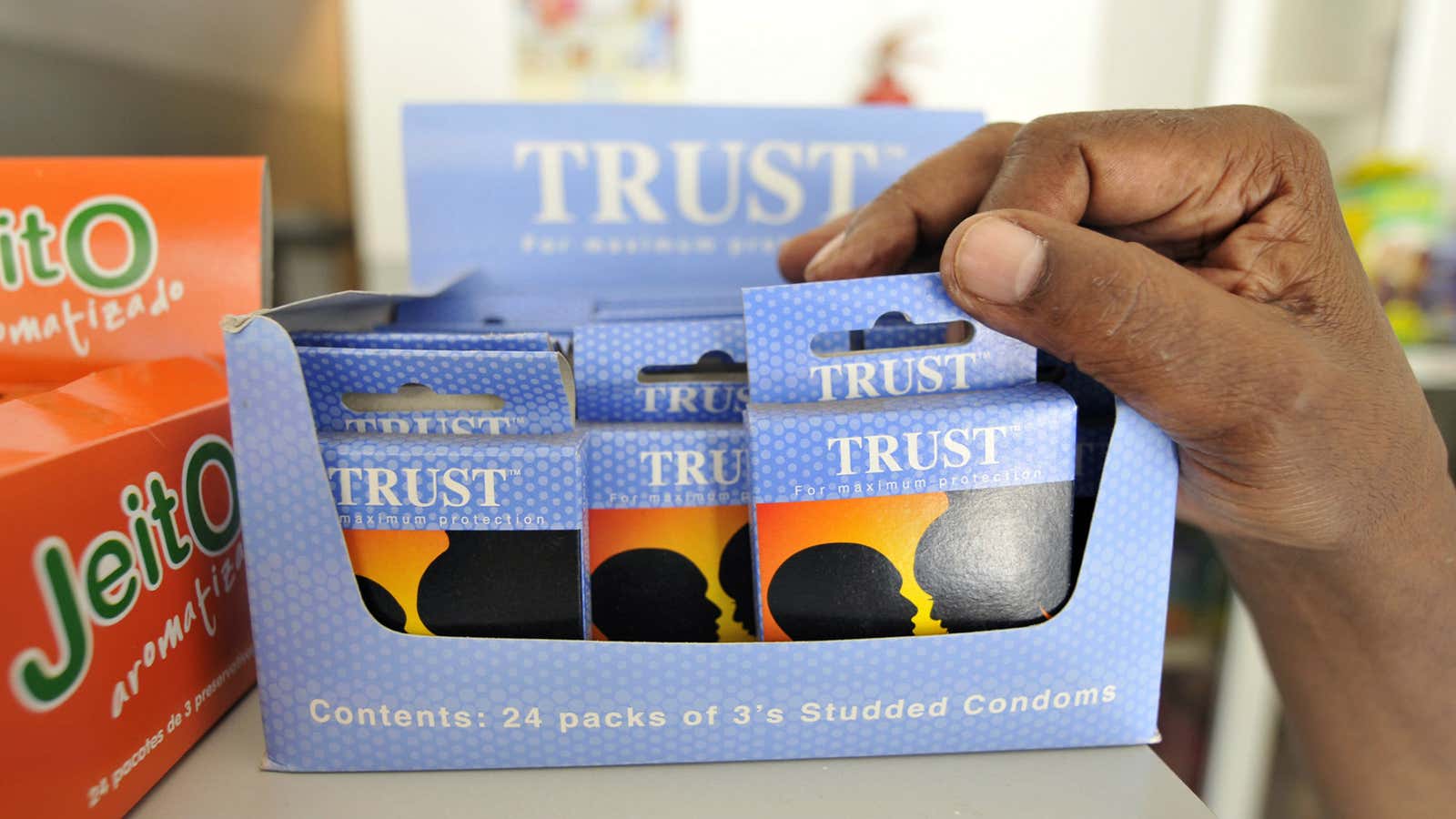A Kenyan government ministry has come under fire for spending $4,400 on 18 custom-made condom dispensers, over $2,000 on a Yamaha piano, almost $500 on one DVD player, and $1,700 on 20 ballpoint pens—a sign, according to some politicians, that corruption has tipped the country into a “national crisis.”
The office under question, the devolution and planning ministry, is charged with helping move decision-making, funds, and other resources from the central government to local offices, as part of the 2010 overhaul of Kenya’s constitution. The ministry accidentally submitted a list of its expenditures to a parliamentary committee this week.
Critics have questioned the process of devolution and giving more power to local governments saying it may actually increase government corruption. In September, residents of the western Bungoma county protested against the local government’s purchase of 10 wheelbarrows for $10,300. Now, the office leading decentralization may be engaging in government graft itself. The ministry has been accused of allowing 791 million shillings, ($7.7 million) to be misspent at in the National Youth Service, a program to train young Kenyans to serve in the military, disaster relief, or reconstruction programs.
So far, 129 Kenyan politicians have signed a petition to impeach devolution and planning minister, Anne Waiguru, according to local media. Waiguru, who claims the situation has turned into a personal attack on her, posted a statement online:
“It’s amazing that whereas there are similar and more serious allegations of misuse of funds in many government departments there is never the personalized level of attack on [cabinet secretaries] that has been directed at me. Surely this is no longer about the fight against corruption. It’s calculated evil, vindictive and ill intentioned… And for the record I have no such TV screen or piano in my office. God bless Kenya.”
For most of the public, the case as yet another example of crippling corruption in a country that is in the middle of a cash crunch. Interest rates are at their highest in almost a decade, putting pressure on borrowers. The Kenyan government, which has had to delay payments to teachers and civil servants, is planning on borrowing $750 million in syndicated loans from a group of Kenya-based banks. Recently, questions have emerged about how money raised from a $2 billion eurobond issued last year have been spent.
